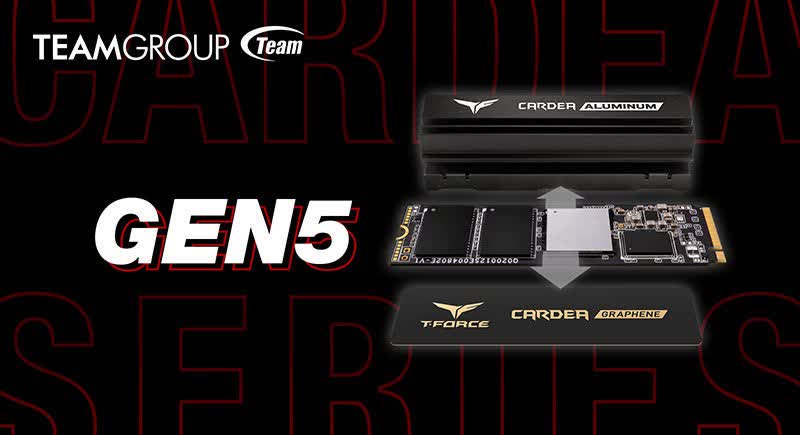Something to look forward to: We’ve been hearing a lot about PCIe 5.0 SSDs over the last few months, and now TeamGroup has joined the party by announcing one of the first PCIe 5.0 x4 storage devices designed for consumers rather than enterprise or server users.

TeamGroup announced that its T-Force Cardea PCIe Gen5 SSD, part of the Cardea series, is capable of maximum sequential read speeds of over 13,000MB/s and write speeds exceeding 12,000MB/s. The company added that it will be available in capacities reaching 4TB.
Those speeds are similar to the upcoming PCIe 5.0 SSDs from Adata, Samsung, and Koxia, as well as the one Intel gave us a glimpse of before CES, all of which can touch 14GB/s reads and 12GB/s writes. But while those drives are designed for servers and other enterprise use, TeamGroup says its Gen5 SSDs will meet the needs of the gaming computing market, video streaming, augmented reality, virtual reality, and other next-gen digital domains, which likely refers to the metaverse.
TeamGroup didn’t reveal many other details about the SSD beyond it requiring a motherboard with an NVMe 2.0 slot. You’ll also need an Intel Alder Lake or Raptor Lake processors or one of AMD’s upcoming AM5 CPUs to make the most of those speeds. There’s no mention of what controller it uses, either; Adata’s Project Nighthawk uses a Silicon Motion SM2508 controller for 14GB/s reads and 12GB/s writes, and Phison, whose tech is used in the Cardea A440 PCIe 4.0 SSD, is working on a Gen5 version of its controller.

We’ve still a while to wait before being able to buy TeamGroup’s T-Force Cardea PCIe Gen5 SSD. The company says it plans to mass-produce the drive in Q3 2022, adding that it will launch with a variety of efficient cooling solutions—we recently saw an M.2 SSD cooler (above) from Qiao Sibo that features a blower fan design—so you still have a few months to save/upgrade your PC.
https://www.techspot.com/news/93171-teamgroup-unveils-13gbs-pcie-50-ssd-consumers.html